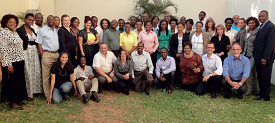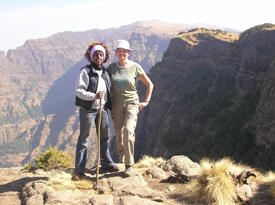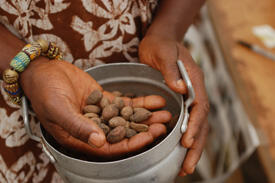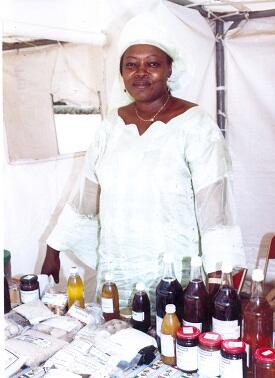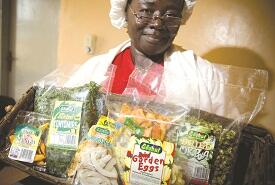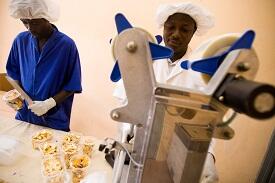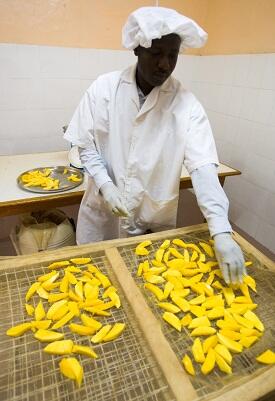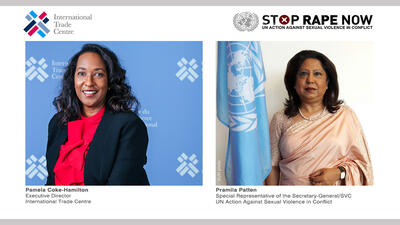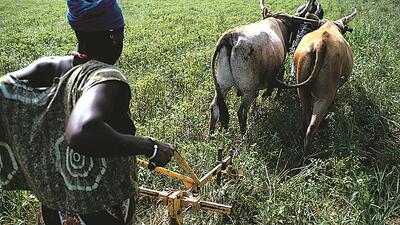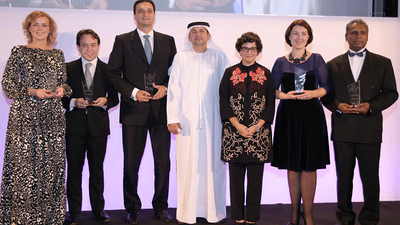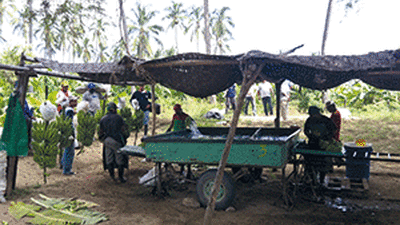Supporting women in Africa
Since 2007, the International Trade Centre’s (ITC) ACCESS! Export Training Programme has been dedicated to addressing these limitations by strengthening the competitiveness of more than 2,500 women exporters. It does this through a network of more than 60 certified national trainers, four certified lead trainers and a comprehensive training package of 32 modules, available in both French and English. Furthermore, ACCESS! works to build the capacity of trade support institutions such as trade ministries, chambers of commerce and women’s business associations to support them.
ACCESS! has grown to be a recognized programme in Africa, helping women exporters in 20 different countries to reach their full economic potential and thereby contributing to long-term poverty reduction and improved standards of living. The following case studies highlight just a few of the many women entrepreneurs in Africa who have benefitted from the support of ACCESS!. They describe how these women have successfully managed their businesses in the face of considerable challenges and how ACCESS! has helped give them a competitive edge in world markets.
Women entrepreneurs say the ACCESS! programme has given them visibility and courage to overcome the barriers and tackle new international markets through the knowledge, confidence and networks gained. Several participants say the technical support they received through the export training and the tailored business counselling programmes have led them to restructure their businesses to optimize efficiency performance and maximize the opportunities to trade regionally and internationally.
The current phase of the ACCESS! programme and its related export development services for women-owned businesses will be gradually expanded outside the African continent in 2013. ITC is working on similar initiatives for other regions and hopes that women entrepreneurs who have benefitted from the programme will share the knowledge and experiences they have gained. That way, the sustainable businesses these women operate and the legacy of ACCESS! will continue to improve opportunities for other businesswomen in years to come.
As Sébastien Turrel, a Senior Trade Promotion Officer in ITC's Office for Africa, says: ‘We have to make sure we leave a strong legacy so that activities will continue beyond the lifespan of the programme. It’s there, it’s working and it’s country-driven.’ Certainly, the demand for innovative products and the ingenuity and tenacity of African women remains, and they are ready to meet the challenge.
The ACCESS! programme was developed and implemented with the support of the Canadian International Development Agency under the Programme for building African Capacity for Trade, and in close collaboration with public and private partners in the Common Market for Eastern and Southern Africa, the Economic Community of West African States and the Economic Community of Central African States. ITC is now adapting the programme to meet the needs of women entrepreneurs in other regions of the world, such as in Latin America, the Caribbean, the Middle East and Asia. For more information, please visit: www.womenexporters.com
Case study: Trading security for adventure
Samrawit Moges had been working for Ethiopia’s National Tour Operation for a decade when she decided to venture out on her own. In 1997, after securing a hard-won business loan and with four years of careful saving, she established Travel Ethiopia and purchased a fleet of Land Cruisers to shuttle tourists to the spectacular sites in the nation’s countryside.
Just as the business started to take off, however, conflict broke out with Eritrea and lasted two years. This was a tough time for tourism and Moges still had to pay off the business loan; but through hard work and innovative strategies Travel Ethiopia survived. It has since grown into one of the country’s top operators with 35 permanent employees, a steady clientele from Europe and North America, and several sister companies in the communities in which they work. ‘Tourism is doing very well now in Ethiopia,’ says Moges. ‘It offers diversified attractions – historical, cultural, scenic, natural wonders and safaris – and Travel Ethiopia is well positioned to make these attractions accessible.’
To help her company take advantage of the growth opportunities, Moges was introduced to the ACCESS! Business Counselling Programme by the Centre for African Women Economic Empowerment, the ACCESS! focal point in Ethiopia. ‘The Business Counselling Programme was a real eye-opener for me,’ says Moges. ‘I had been in business for over a decade but I had never set targets. The programme worked with me to set targets and develop a set of recommendations to reach them. The ITC-trained business counsellor gave excellent advice in a very collaborative and professional manner. I have embarked on a six-month plan to implement the recommendations, including restructuring the company and a training plan for my employees.’
As per the recommendations of the ACCESS! business counsellors, Moges has also hired a consultant. ‘We did an evaluation and now aim to totally transform the company and become Ethiopia’s premiere tour operator,' she says. The company is in a solid position to achieve this within the ecotourism niche, which is the fastest growing tourism sub-sector and typically brings the most benefit to local communities.
As one of the founders of the Ethiopian Ecotourism Association, Moges has ensured her company has established deep roots in the areas in which it works. One example is Travel Ethiopia’s sister company Village Ethiopia, which operates a sustainable, community-based ecolodge in the Afar region. Further opportunities have also arisen as Travel Ethiopia invests in local partnerships, resulting in spin-off companies in tourism-related industries, including a flower farm in Koko that employs 300 women.
Moges’s success has not been without personal sacfrice. She explains that she struggled when she had to choose business activities over being with her children full time when they were still young; she also had to opt out of many networking events in order to be with her family. On balance, though, she believes that growing up with the business was an enriching experience for her children and offered them a window into their country’s ancient culture and rich heritage.
Ethiopia is just starting to tap into the economic potential of tourism and Moges has been invited to play a more formal role in promoting Ethiopian tourism overseas. In addition, she was elected for a second time to sit on the board of Ethiopia’s Addis Ababa Chamber of Commerce. Combined with her pioneering role in ecotourism and successful spin-off initiatives, such roles only serve to confirm that if you have ambition, it is sometimes better to trade security for adventure.
Case study: Growing more than just a business
After completing a vocational training programme, Antoinette Koudjal Mangaral founded her business, Établissements KAMA, with her husband’s financial backing in 1995. Based in Chad, it specializes in the collection and processing of shea nuts into shea butter. Sub-Saharan Africa already grows and supplies most of the world's shea nuts, but the region’s output has yet to reach its full potential. In Chad, for example, only a small percentage of the country’s millions of shea trees are harvested, despite strong local demand for shea butter for use in cooking and cosmetics. There is also strong export potential – Europe alone consumes up to 60,000 tonnes of shea butter every year.
When Mangaral launched her business, she knew that its success would depend on the development of the agriculture sector as a whole across Chad. To ensure she was in a good position to influence and promote the sector, she offered to head the Chadian Association of Agro-business Operators in 2003. Once elected, she worked hard to create a dynamic that would support the industry, and the organization itself grew under her stewardship.
Mangaral also joined an association for women artisans that has a membership of more than 1,000, some of whom supply raw materials to Établissements KAMA. Moreover, she has been a member of the Chadian Association of Women in Business for over a decade, where she mentors businesswomen in rural areas. As a result of her success and positive actions, Mangaral has won recognition in Chad for both her contribution to the country’s overall economic development and for promoting women in business.
Yet even with her significant experience, Mangaral found it useful to undertake an ACCESS! training programme. 'I undertook a total restructuring process of my business. I set out to organize all of the tasks being done in the company; we strengthened our accounting system and I got more involved in certain areas that required better supervision. I now train my staff so that they can manage business operations at home while I am away developing export markets. I have also transferred skills for better managing the supply chain. Everything is up and running now.'
‘I particularly benefitted from the training sessions on negotiating skills, pricing and INCOTERMS® 2010,’ says Mangaral, referring to the International Chamber of Commerce’s predefined commercial terms that are widely used in international transactions. ‘In the past, I didn’t concern myself as much with these areas. People would approach Établissements KAMA directly to purchase our products, but I knew very little about the terms and conditions of contracts. The ACCESS! training helped me to formalize contracts around business deals and these have proven to better secure my interests.’
In Chad, the national focal point for the ACCESS! programme is the Chamber of Commerce, Agriculture, Mining and Crafts. ‘The ACCESS! focal point has really shown its commitment to offering the programme and its services to all women,’ says Mangaral, ‘both by developing the programme in other regions of Chad while also establishing links for us with business opportunities in neighbouring countries.’
Overall, the future looks very bright for the business Mangaral founded 17 years ago, despite her working against a backdrop of political instability and civil war. Demand for shea butter remains strong and the economic infrastructure needed to service that demand is significantly more advanced than it was when she embarked on her journey.
Case study: From twenty pieces to three tonnes
Paully Appiah Kubi’s business idea began after she witnessed good quality fruit and vegetables being wasted due to a lack of storage and processing facilities in rural Ghana. Although the company had only a handful of competitors, Kubi sought from the beginning to differentiate her business. Thanks to her experience as a food scientist, she knew how to maintain the high nutritional value in fruits and vegetables during the drying process – a factor that she knew was of increasing importance to many consumers.
Kubi founded Ebenut Ghana in 1996, working from a small, local workshop with a single dryer capable of processing 20 pieces of fruit or vegetables at a time. Despite having few direct rivals, she sought to differentiate the company early on by using processes that allowed it to create a line of Fair Trade and organic-certified products. Her strategy worked: Ebenut now employs nearly 50 people, processes and sells three tonnes of dried produce per month, and exports to West Africa, Europe and the United States of America.
The company’s overseas business benefitted from Kubi undertaking an ACCESS! export training programme, managed by the Ghana Export Promotion Authority. Kubi says: 'The programme covers so many topics about export business that are important to get right. I particularly appreciated the training modules on INCOTERMS® 2010 and negotiations. Now, with this new confidence, I can talk to customers in a way that is win-win. Knowledge can remove fear as a barrier to tackling new markets.’ Kubi also participated in the ACCESS! Business Counselling Programme and hopes it will work with her to build the best strategy for the launch of a new line of products into North America.
Kubi was recognized for her business acumen in 2008 when she was nominated by the United Nations Conference on Trade and Development for the annual Woman in Business Award. In addition, she is a respected member of the Association of Ghana Industry and of the Empretec Business Forum. Yet despite excellent market prospects, high-quality products and international recognition for her company’s performance, it remains near impossible for Ebenut to access working capital from a formal financial institution. Women in Ghana have very little access to collateral, which the majority of institutional loans require.
‘For three years the banks have been reluctant to lend to me,’ says Kubi. ‘They offer to lend based on orders, of which I have plenty. But I cannot risk taking on large order increases if the banks are not going to follow through.’ Like many women in the region, she has to plough her profits directly back into carefully stewarded expansion. For this reason, Ebenut turns away an estimated seven tonnes in orders per month, missing the opportunity to purchase from local farmers, hire more employees and boost Ghana’s exports.
The tight cash flow also affected Ebenut’s preparedness for the economic downturn: ‘That would have been the time to step up marketing efforts and get into trade fairs and more market development.’ Kubi responded to the changes by strengthening Ebenut’s local market presence: ‘Once you overcome so many obstacles, you get used to it and you just find solutions; you are not going to run away from another.’
This year, Ebenut expanded its line of dried fruits, nuts and vegetables with instant versions of traditional Ghanaian jollof rice and gari foto. Armed with her new knowledge and confidence, Kubi is already planning to launch the products into new markets. She says: ‘I have no doubt the ACCESS! Business Counselling Programme will be a significant factor in this next step.'




